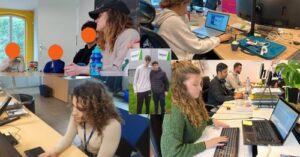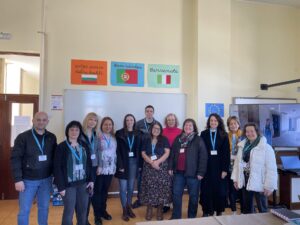The KA2 SUS&DIV project wants to:
- create an inclusive environment in cooking and catering vocational adult training: Diversity is gaining in Europe. The European Commission focuses on the importance of diversity and inclusion in our workplaces and in the society throughout the whole European Union through actions such as Diversity Month. If we want employers who are able to adequately and ethically deal with diversity issues, we have to create an inclusive environment in our education system. In our context we see diversity in an intersectional approach. Intersectionality means that somebody’s social identity is not perceived in terms of just one aspect of it (such as gender, social class, religion, ethnicity, sexuality) but that these aspects together shape somebody’s perceived and experienced social identity. All these different aspects coexist, mutually reinforce each other and decide the unique social location that an individual occupies. The broader social environment also influences the way a person experiences his or her specific social location in society. It is not possible to provide diversity-sensitive teaching and learning without addressing this complex relation between social identities and the organizational and societal context. (Radstake, 2021)
- implement sustainability in cooking and catering vocational adult training: The Farm to Fork Strategy is at the heart of the Green Deal. It addresses comprehensively the challenges of sustainable food systems and recognizes the inextricable links between healthy people, healthy societies and a healthy planet. The strategy is also central to the Commission’s agenda to achieve the United Nations’ Sustainable Development Goals (SDGs). All citizens and operators across value chains, in the EU and elsewhere, should benefit from a just transition, especially in the aftermath of the COVID-19 pandemic and the economic downturn. A shift to a sustainable food system can bring environmental, health and social benefits, offer economic gains and ensure that the recovery from the crisis puts us onto a sustainable path. If we want the Farm to Fork strategy to be successful, the catering and cooking education has to be involved, so the strategy will be adapted in future catering businesses.





